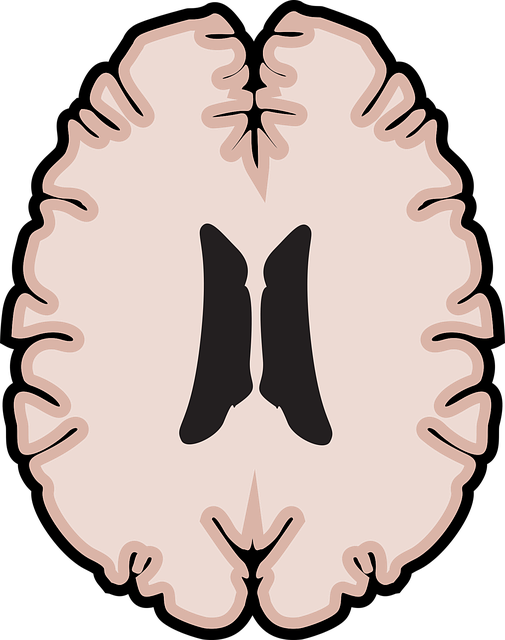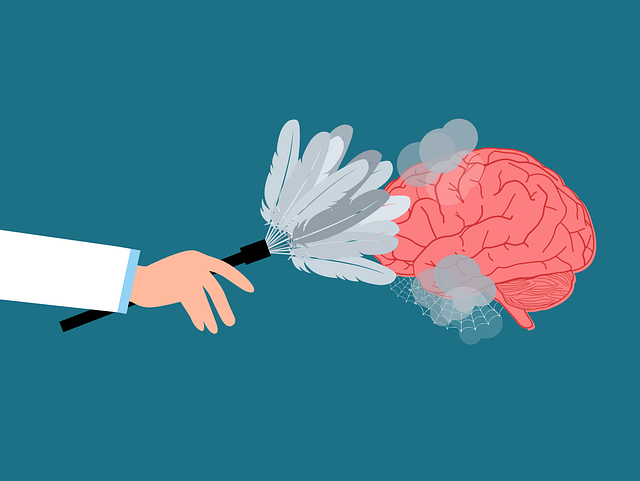Castle Rock Divorce Therapy creates supportive mental wellness groups that prioritize safety and non-judgment. Skilled facilitators guide members through structured sessions incorporating techniques like Social Skills Training, Stress Management, and Mindfulness Meditation. These groups foster open dialogue, build resilience, and improve coping strategies in a community setting. High engagement activities promote active listening and emotional expression while reducing stigma. Success is measured through qualitative and quantitative data showing improvements in communication, emotional regulation, and social connections, enhancing overall well-being.
Mental wellness groups offer a supportive environment for individuals to navigate challenges, fostering healing and growth. In this article, we explore effective facilitation techniques that enhance group dynamics, focusing on unique approaches like Castle Rock Divorce Therapy. From creating safe spaces to mastering engagement strategies, facilitators play a pivotal role in guiding members towards mental well-being. We delve into skills, responsibilities, and innovative practices, offering insights into successful group facilitation and its measurable impact.
- Understanding Mental Wellness Groups: Creating a Safe Space
- The Role of a Facilitator: Skills and Responsibilities
- Castle Rock Divorce Therapy: A Unique Approach to Group Support
- Techniques for Effective Group Sessions: Engagement and Interaction
- Measuring Success: Evaluating the Impact of Group Facilitation
Understanding Mental Wellness Groups: Creating a Safe Space

Mental wellness groups offer a unique and supportive environment where individuals with shared experiences or struggles can come together. Creating this space is an art that facilitates open dialogue, fosters understanding, and empowers members to take control of their mental health. In a world often dominated by stigma, these groups provide a sanctuary for those facing challenges such as depression prevention, anxiety, or coping with life transitions like Castle Rock Divorce Therapy.
The concept of safety is paramount in group facilitation. It encourages participants to share their stories without fear of judgment, creating a sense of belonging and trust. Through established ground rules and a non-judgmental atmosphere, facilitators can ensure that members feel heard and validated. This safe haven allows for the exploration of Self-Care Practices and promotes the adoption of healthy coping mechanisms, including Mindfulness Meditation, helping individuals navigate their mental wellness journeys with resilience and support.
The Role of a Facilitator: Skills and Responsibilities

In facilitating mental wellness groups, the role of a skilled facilitator is akin to guiding a ship through uncharted waters. They must possess a unique blend of skills and qualities to ensure the safety and well-being of group members while fostering an environment conducive to healing and growth. A good facilitator at Castle Rock Divorce Therapy understands that each individual brings their own experiences, strengths, and challenges, and tailors interactions accordingly. They facilitate open dialogue, encouraging active participation and empathy among members, creating a safe space for vulnerability and authentic expression.
Beyond facilitating conversation, these professionals are responsible for structuring sessions, incorporating effective techniques like Social Skills Training, Stress Management Workshops, and Mindfulness Meditation to enhance group dynamics. They must possess excellent communication skills, cultural sensitivity, and the ability to navigate complex emotional situations with professionalism and compassion. By balancing structure and flexibility, facilitators create a supportive community where members can build resilience, improve coping mechanisms, and cultivate meaningful connections.
Castle Rock Divorce Therapy: A Unique Approach to Group Support

Castle Rock Divorce Therapy offers a unique and innovative approach to group support for individuals navigating divorce or separation. Unlike traditional therapy models, this method focuses on creating a supportive community where participants can share their experiences, gain insights from peers, and learn effective coping strategies in a structured yet non-judgmental environment. By fostering open dialogue and encouraging active participation, the therapy sessions become a powerful tool for emotional healing and personal growth.
The technique behind Castle Rock Divorce Therapy emphasizes the power of community healing. It recognizes that public awareness campaigns and burnout prevention strategies for healthcare providers—who often bear witness to the impact of divorce on individuals and families—can be enhanced through group facilitation. Mindfulness meditation techniques are integrated into the sessions, promoting present-moment awareness and emotional regulation skills that participants can apply in their daily lives, helping them to navigate life’s challenges with resilience and grace.
Techniques for Effective Group Sessions: Engagement and Interaction

Effective group sessions for mental wellness are characterized by high engagement and interaction among participants. One powerful technique to foster this is the use of interactive activities that promote active listening and emotional expression. For instance, facilitating open discussions where members share their experiences and perspectives can create a supportive environment, enhancing feelings of belonging and reducing stigma associated with mental health issues. This not only encourages individuals to open up but also allows them to learn from one another, fostering a sense of community.
Incorporating exercises that challenge participants to think critically and engage with different viewpoints is another effective strategy. These activities can include role-playing scenarios related to common challenges, such as anxiety relief or stress management, where members take turns assuming roles to practice communication skills. Such exercises not only enhance emotional intelligence but also equip participants with tools to navigate interpersonal interactions more effectively. Moreover, incorporating these interactive elements can make group sessions engaging and dynamic, mirroring the benefits of Castle Rock Divorce Therapy’s approach to holistic mental wellness.
Measuring Success: Evaluating the Impact of Group Facilitation

Measuring success in group facilitation goes beyond simply filling a room with participants. It’s about evaluating the tangible impact on mental wellness. Through techniques like Castle Rock Divorce Therapy, facilitators can assess progress by tracking individual and collective improvements in key areas such as communication skills, emotional regulation, and coping mechanisms. Regular feedback from group members and objective assessments can provide valuable insights into the effectiveness of the sessions.
By incorporating practices like self-care routine development for better mental health and compassion cultivation, facilitators can create an environment that fosters growth. The success of these efforts should be measured not only through qualitative feedback but also quantitative data indicating reduced stress levels, improved mood, and enhanced social connections. This holistic approach ensures that the group facilitation techniques are making a profound and positive difference in participants’ lives, similar to how compassionate cultivation practices can profoundly impact mental wellness.
Mental wellness group facilitation is a powerful tool for fostering support and understanding. As seen with innovative practices like Castle Rock Divorce Therapy, creating safe spaces can revolutionize how individuals navigate challenging topics. By combining effective techniques such as active engagement and structured interaction, facilitators enhance group dynamics and create profound impacts. Through regular evaluation, success in these sessions can be measured, ensuring that every participant receives the support they need to thrive.














